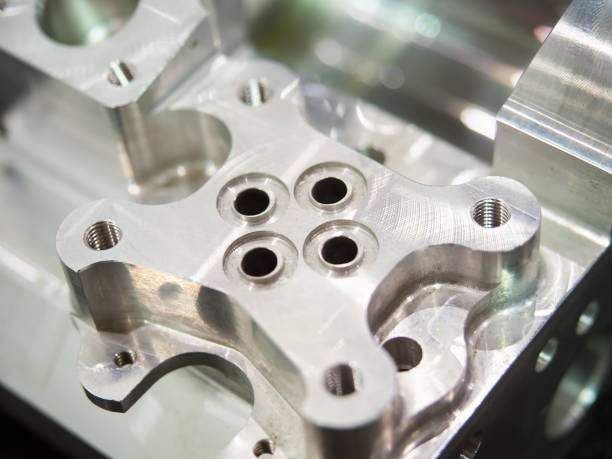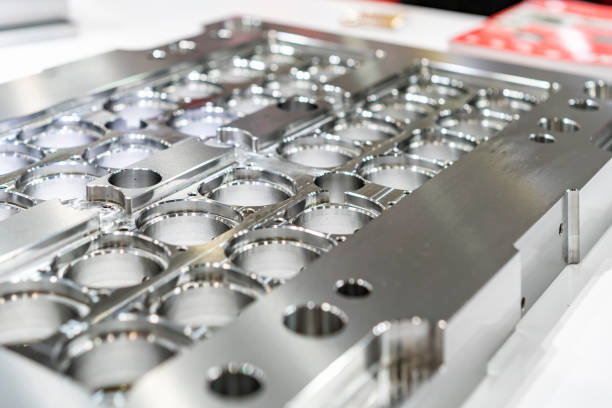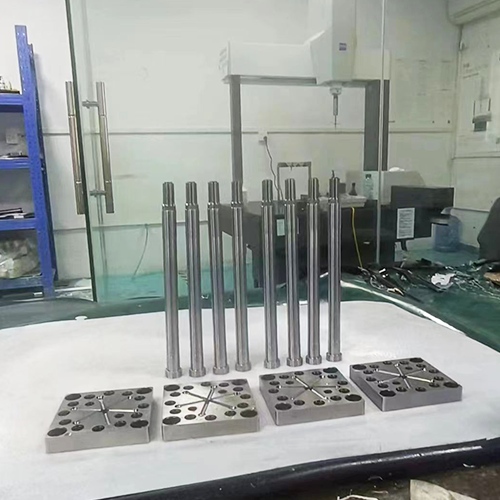What Factors Affect the Quality of Precision Mold Components?
In precision manufacturing, the quality of precision mold components directly impacts the efficiency, durability, and performance of molds used in various industries, including automotive, medical, and consumer electronics. Understanding the factors that influence quality helps manufacturers ensure reliability, consistency, and long-term cost savings. This article explores the key aspects that affect custom precision mold components, the role of precision mold component makers, and how to achieve optimal manufacturing standards.
1. Material Selection: The Foundation of Quality
The choice of material is one of the most critical factors in manufacturing custom precision mold components. High-quality materials such as hardened tool steel, stainless steel, and carbide offer excellent wear resistance, thermal stability, and durability. Poor material selection can lead to premature wear, cracking, or deformation, reducing the lifespan and performance of the mold. Manufacturers must carefully choose materials based on the intended application, production volume, and required precision.
2. Precision Machining Techniques
Advanced precision parts manufacturing techniques significantly affect mold component accuracy. Technologies like CNC machining, EDM (Electrical Discharge Machining), and high-speed milling ensure tight tolerances and fine surface finishes. A reputable custom precision mold components maker invests in cutting-edge machinery to achieve exceptional precision, ensuring that mold components fit perfectly within the mold assembly. The use of multi-axis machining further enhances accuracy, reducing the need for manual adjustments.
3. Tolerance and Dimensional Accuracy
Mold components require extreme dimensional accuracy, often within microns. Any deviation from the required tolerance can lead to improper mold function, defects in molded products, and increased maintenance costs. High-precision measurement tools such as coordinate measuring machines (CMM) and optical comparators are essential for quality control, ensuring that each component meets strict specifications before assembly.

4. Surface Finish and Coatings
Surface finish plays a vital role in mold performance. A well-polished mold component reduces friction, enhances part ejection, and minimizes defects such as scratches or drag marks on molded parts. Additionally, specialized coatings like PVD (Physical Vapor Deposition), TiN (Titanium Nitride), or DLC (Diamond-Like Carbon) improve wear resistance, reduce corrosion, and enhance the overall durability of precision mold components.
5. Heat Treatment for Enhanced Durability
Heat treatment strengthens mold components, improving hardness and resistance to wear. Processes like nitriding, tempering, and quenching ensure that mold components withstand high-pressure injection molding cycles without deforming or failing. Proper heat treatment tailored to the material and application extends the lifespan of the mold and reduces downtime for maintenance or replacement. Each custom precision mold component must integrate seamlessly into the overall mold system. Poor fit can lead to issues like flash (excess material in molded parts), misalignment, or increased cycle times. A reliable precision mould part manufacturer ensures that all components undergo rigorous quality checks, including trial assemblies, to verify perfect compatibility before shipping to clients.

6. Maintenance and Longevity
Even high-quality precision mold components require proper maintenance to ensure long-term performance. Regular cleaning, lubrication, and inspection prevent wear-related issues and extend the mold’s operational lifespan. High-precision mold components that are designed for easy maintenance contribute to reduced downtime and lower overall production costs.

Choosing the Right Custom Precision Mold Components Maker
To achieve consistently high-quality precision mold components, it is essential to work with an experienced precision mold component maker. A reputable manufacturer will provide:
Advanced machining capabilities for tight tolerances
High-quality materials and coatings
Comprehensive quality control measures
Custom design support to meet specific industry needs
Reliable delivery and after-sales support
By selecting the right precision parts manufacturing partner, businesses can improve production efficiency, reduce mold maintenance costs, and ensure flawless product quality.
Conclusion: Investing in Quality for Long-Term Success
The quality of precision mold components depends on factors such as material selection, machining accuracy, tolerance control, surface finish, heat treatment, and assembly fit. By understanding these key elements and partnering with a trusted custom precision mold components maker, manufacturers can optimize performance, reduce production costs, and extend the lifespan of their molds. Investing in high-quality precision parts manufacturing is a smart decision that leads to greater efficiency, fewer defects, and long-term savings.
precision mold components custom precision mold components precision mold component maker precision parts manufacturing


